Rising Child Malnutrition Amid Food Insecurity and Conflict in Northern Nigeria
The rising cost of living, persistent insecurity, and climate change are the primary drivers of the growing cases of child malnutrition cases in Nigeria’s North.
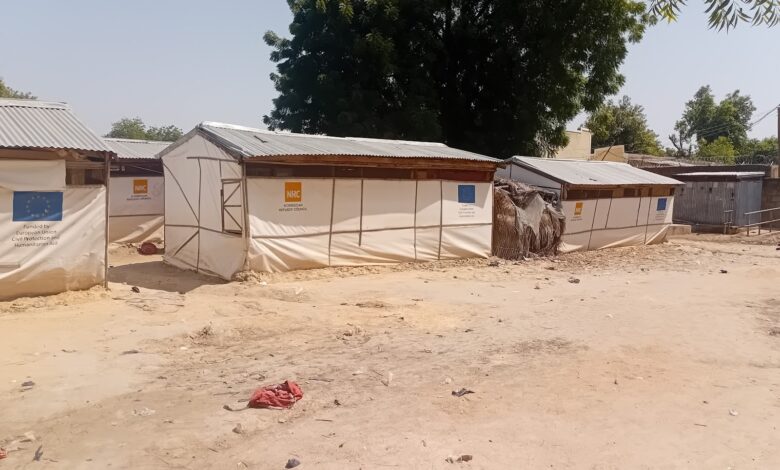
Six months ago, Fatima Modu, a resident of the Dagash IDP camp in Maiduguri, Borno State, northeastern Nigeria, noticed her one-year-old daughter, Zainab, was losing a lot of weight. She initially assumed it was due to the child’s recurring bouts of diarrhoea. However, when the weight loss worsened, Fatima brought her to an outpatient therapeutic program centre.
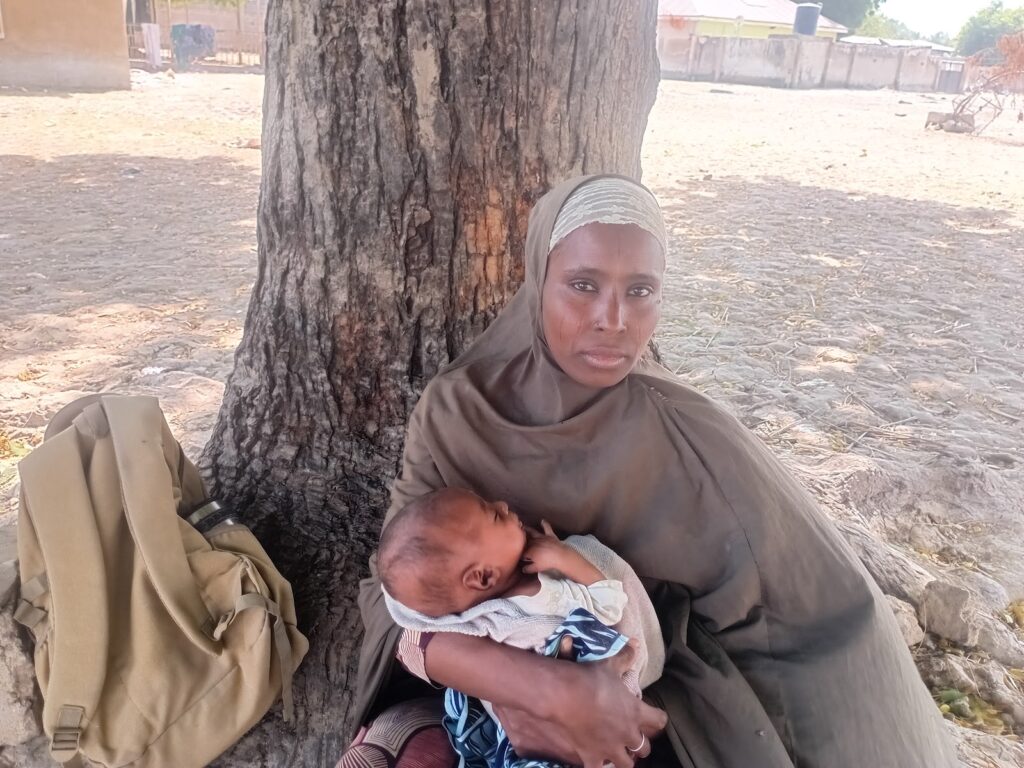
At the Care Best Initiative’s outpatient therapeutic program centre in Maiduguri, Zainab was diagnosed with malnutrition and was later admitted. Fatima stayed at the centre for 10 days as her daughter received treatment until she was discharged.
“I believe it is hunger,” Fatima told HumAngle. “We have no money to buy enough food to feed our children.”
Another resident of the Dagash camp, 28-year-old Kaltum Ibrahim, faced a similar ordeal. Four months ago, she noticed her six-year-old, Fannami, was rapidly losing weight. “He was having diarrhoea and kept getting slim,” she said, recalling the same symptoms one of her daughters experienced in the past before she passed away during last season’s flooding.
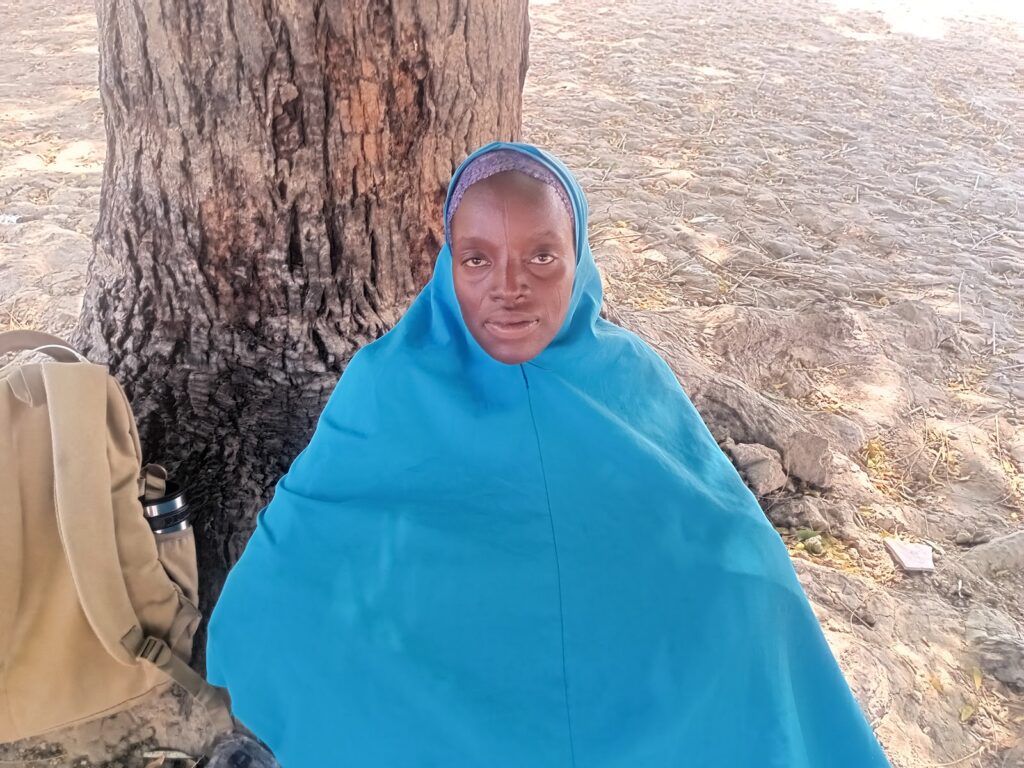
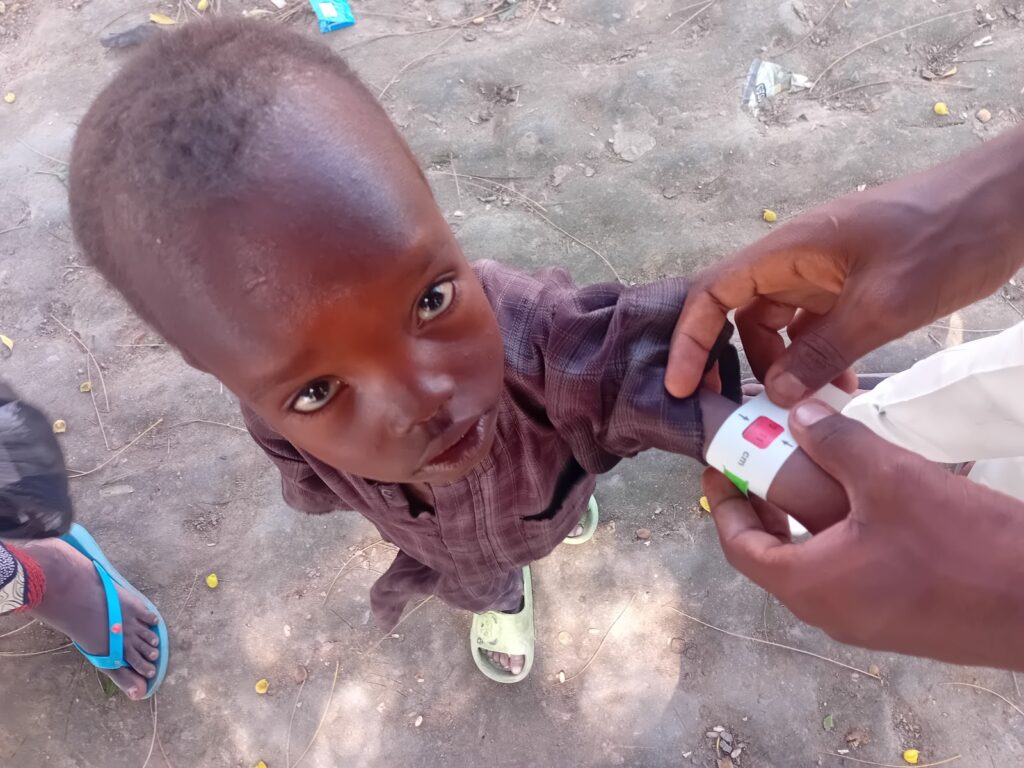
Kaltum also sought help at Care Best Initiative, where her son was diagnosed with malnutrition and provided with ready-to-use therapeutic food (RUTF). “We mostly eat garri [cassava flakes], corn pap, and tuwo, and there’s nothing else,” she explained, adding that the RUFT was helpful.
The RUTF formula comprises powdered milk, peanuts, butter, vegetable oil, sugar and a mix of vitamins and minerals. A sachet of RUFT contains 500 calories and micronutrients that help malnourished children to gain weight.
“We have not received any assistance from the government; the assistance we received was from an NGO called Care Best Initiative, which used to give us the RUTF formula,” said 36-year-old Kaltuma Hamid. She has two daughters struggling with malnutrition—Ammabuwa, who is just over two, and Maimuna, about a year old.
Kaltuma attributes her daughters’ malnutrition primarily to hunger. She urges support for vulnerable breastfeeding mothers through access to nutritious food, essential to tackling the worsening malnutrition crisis.
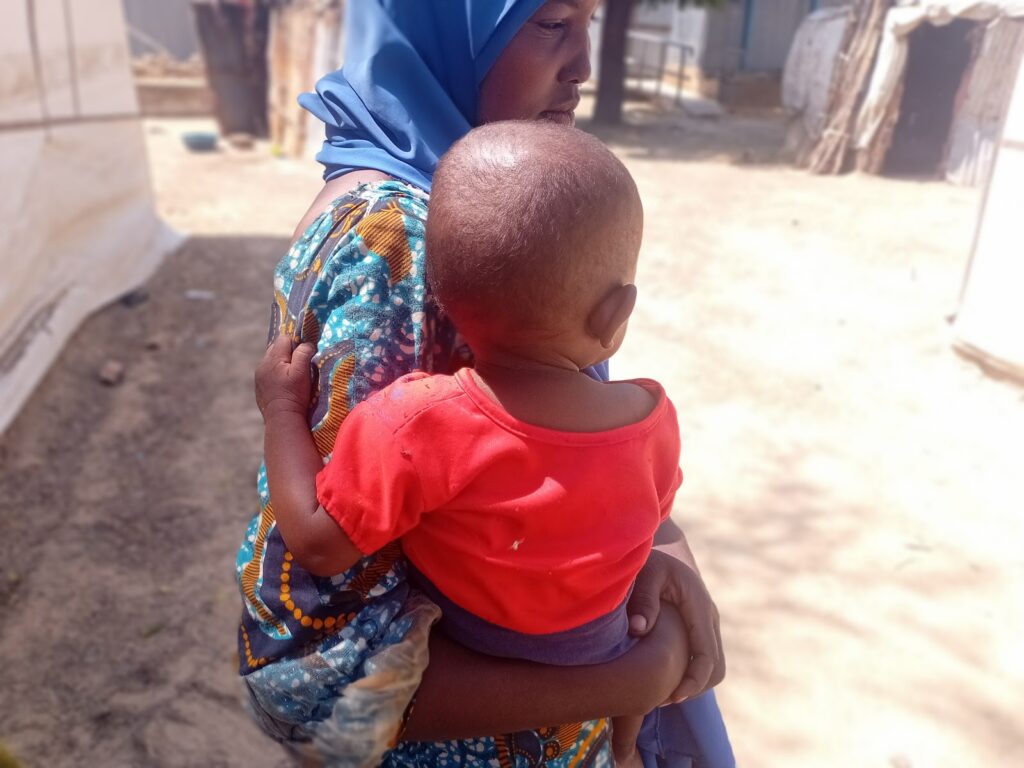
An escalating crisis.
As of August 2024, over 31.8 million Nigerians are facing acute food insecurity and malnutrition, according to the Federal Ministry of Budget and Economic Planning. Armed violence and climate-related disasters continue to worsen this crisis, straining already limited resources and medical services.
A report by the International Committee of the Red Cross (ICRC) recorded a 24 per cent rise in child malnutrition in northeastern Nigeria, highlighting the impact of escalating conflict and climate change on food security.
At Dagash IDP camp, Fatima Abubakar, the mother of two-year-old twin girls, Zarah and Fatima, has watched helplessly as they, too, battle malnutrition. For over three weeks, they have been unable to afford a three-square meal. The family primarily subsists on corn-based pap and sorghum flour.
“It was Care Best Initiative volunteers that came and found out that they are malnourished, and then they prescribed the RUTF formulation,” she said. For Fatima, this was the first time she faced such a problem that none of her kids had ever been malnourished.
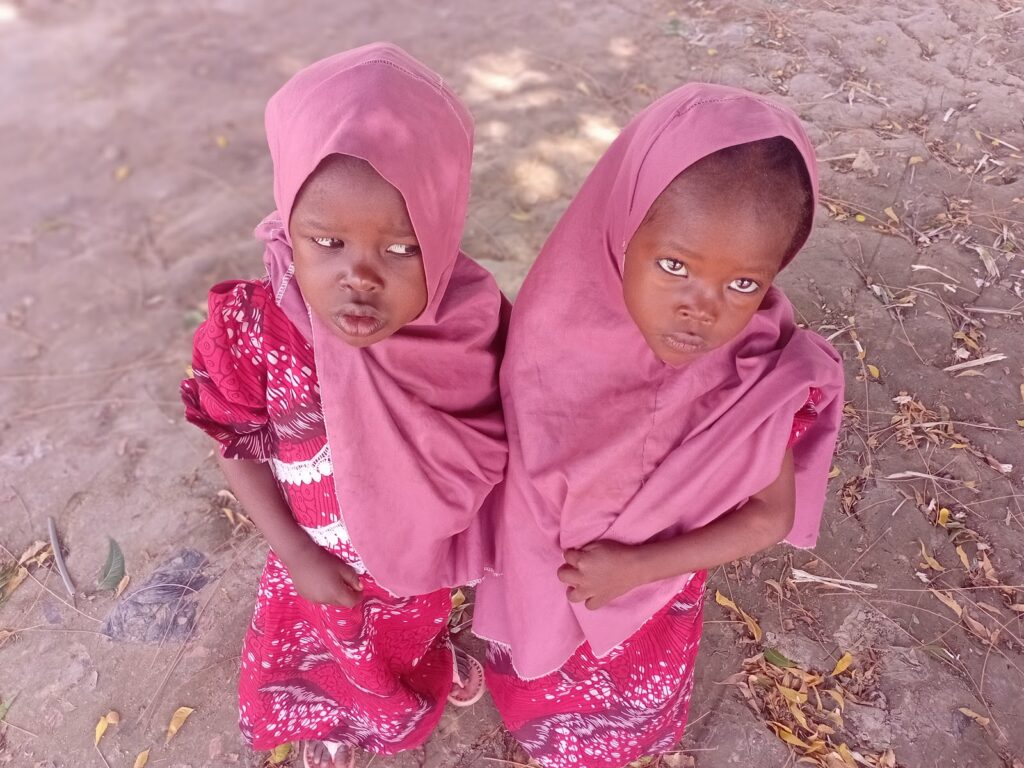
In the northwestern state of Zamfara, locals also attribute the rising malnutrition to relentless violence, which prevents access to healthcare and disrupts farming. A 2023 report noted that about 500 primary healthcare centres in Zamfara remain unreachable due to insecurity. Médecins Sans Frontières (MSF) confirms the impact, reporting that healthcare facilities across the north are frequently non-operational, leaving families with few options.
Additionally, MSF notes a concerning reduction in global funding, which limits the support available to communities already strained by climate, poverty, and insecurity.
“This means that there are fewer organisations that can support these communities. These factors contribute to healthcare challenges and increase child malnutrition,” the humanitarian organisation told HumAngle, adding that Nigeria also faces a shortage of therapeutic foods crucial for treating malnutrition. In response to a global supply shortfall, UNICEF has issued an urgent appeal to address the crisis.
MSF also observes that many of their malnourished patients lack immunisation. According to GAVI, Nigeria has 2.3 million unvaccinated children, which exacerbates the vulnerability of affected communities. Climate change further intensifies these challenges; flooding has decimated crops across northern regions, reducing food availability, while inflation has made necessities unaffordable for many. MSF operates ten hospitals across Nigeria’s north to treat severe acute malnutrition and has reported a significant surge in cases—from January to August 2023, they treated 138,000 malnourished children, and this year that number rose to 208,000—a 51 per cent increase.
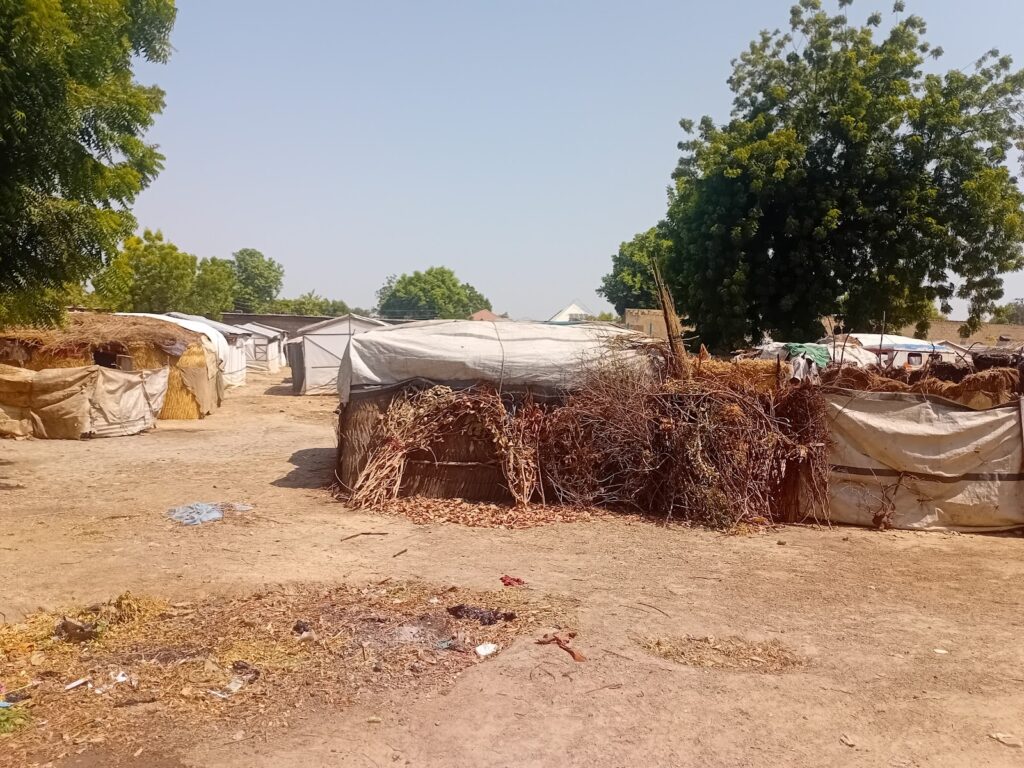
Admissions to inpatient therapeutic feeding centres (ITFCs) also rose sharply, from 32,000 to 52,000—a 60 per cent jump. In Katsina, for example, MSF’s outpatient program currently serves 22,000 children who receive treatment at local clinics while recovering at home. “We also have over 300 children admitted to inpatient hospitals with severe malnutrition,” an MSF spokesperson stated, noting that, during a recent vaccination campaign in Zamfara, they screened 97,149 children in 21 urban and rural locations. “The results showed that 27 per cent of these children were acutely malnourished, with 5 per cent severely acutely malnourished and 22.8 per cent moderately acutely malnourished.”
Most times, treating children with severe acute malnutrition requires hospitalisation. Sometimes, the children stay in the hospitals for over a month to get medical attention from experts.
“In our Maiduguri hospital alone, we prepared 200 beds for the malnutrition peak season, but by August, we were treating over 500 patients, sometimes admitting 100 new patients daily,” MSF reported. The organisation also operates 32 outpatient centres where children with less severe malnutrition are treated while they recuperate at home. “At one point, across our outpatient centres in Kebbi state alone, we were treating over 13,000 children for moderate malnutrition,” MSF said.
To tackle these issues, MSF has implemented several community-based initiatives to support vulnerable families, reduce severe malnutrition, and prevent hospital admissions. Among these is the “Tom Brown” recipe initiative, which promotes a nutritious porridge made from locally available grains. MSF emphasises the importance of dietary diversity in tackling malnutrition, noting that this porridge mix is rich in essential nutrients and easily accessible in local markets.
In Bauchi, MSF recently launched an Integrated Community Case Management Plus (iCCM+) program to train community members in diagnosing and treating moderate malnutrition before it becomes severe. However, to sustainably reduce child malnutrition, MSF advocates for routine immunisation and sustained investment in primary healthcare by the government, noting these steps as essential in addressing the crisis across northern Nigeria.
In northeast Nigeria, child malnutrition cases are rising due to climate change, insecurity, and poverty, with families in IDP camps like Dagash struggling to access nutritious food.
Many children, like those of residents Fatima Modu and Kaltum Ibrahim, are diagnosed with malnutrition and receive treatment with ready-to-use therapeutic foods from NGOs such as Care Best Initiative, though government assistance is lacking.
As of August 2024, 31.8 million Nigerians face acute food insecurity. Climate disasters and armed violence exacerbate the crisis, while a decline in global funding limits aid. Reports highlight the inaccessibility of primary healthcare due to insecurity, with MSF noting a significant rise in malnutrition cases and urging improved healthcare and nutritional diversity.
Community programs like Tom Brown's porridge recipe initiative are underway to combat malnutrition and prevent severe hospital admissions.
Support Our Journalism
There are millions of ordinary people affected by conflict in Africa whose stories are missing in the mainstream media. HumAngle is determined to tell those challenging and under-reported stories, hoping that the people impacted by these conflicts will find the safety and security they deserve.
To ensure that we continue to provide public service coverage, we have a small favour to ask you. We want you to be part of our journalistic endeavour by contributing a token to us.
Your donation will further promote a robust, free, and independent media.
Donate HereStay Closer To The Stories That Matter




